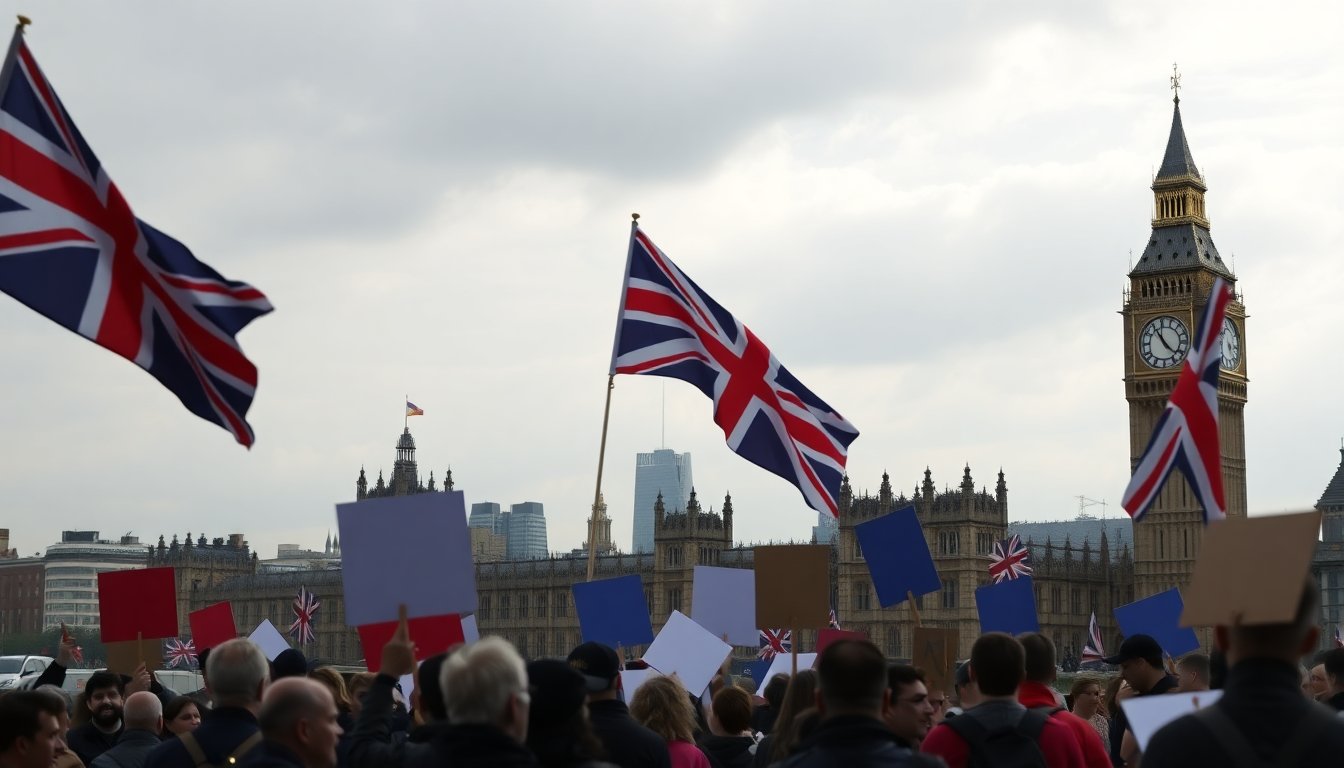Table of Contents
The relationship between US President Donald Trump and London Mayor Sadiq Khan has deteriorated during Trump’s recent state visit to the United Kingdom. The tension between the two political figures has been evident, with Trump openly criticizing Khan, calling him one of the world’s least effective mayors.
In a statement aboard Air Force One, Trump remarked, “I didn’t want Khan to be present. He requested to attend, but my preference was clear.” This comment highlights Trump’s dissatisfaction with Khan and reflects the broader implications of their ongoing rivalry, which raises questions about leadership and governance.
Trump’s Critique of Khan’s Leadership
During his comments, Trump did not hold back, stating, “The Mayor of London, Khan, is among the worst mayors globally, and I can point to several others that are similarly ineffective.” He further compared Khan’s leadership style to that of the mayor of Chicago, suggesting both have struggled to manage their cities effectively.
“London is grappling with rising crime rates, and Khan’s administration has not adequately addressed this pressing issue,” Trump claimed. This assertion echoes criticisms that have characterized their exchanges, with Trump contending that Khan’s policies on crime and immigration have negatively impacted the city.
Longstanding Tensions
This recent confrontation is yet another chapter in the ongoing saga between Trump and Khan. The Labour mayor has consistently accused Trump of promoting divisive politics, both in the United States and globally. These tensions have intensified due to Trump’s controversial policies, which Khan argues foster far-right sentiments.
The backdrop of this feud is significant, as it raises questions about the responsibilities and challenges political leaders face in today’s world. The ongoing dialogue between Trump and Khan serves as a microcosm of the larger political landscape, where leaders are continually scrutinized for their actions and policies.
Hong Kong’s Declining Birth Rate
Shifting focus to another pressing issue, recent statistics indicate a troubling trend in Hong Kong’s birth rate. The number of registered births has declined by 8% in the first seven months of this year, dropping to 18,908 from 20,523 during the same period last year. This decline raises concerns about the region’s demographic future.
Experts analyzing the data suggest that previous government initiatives, including a cash handout program for newborns, have had minimal impact on encouraging couples to have children. Despite a brief surge in births during the Year of the Dragon, traditionally considered auspicious for childbirth in Chinese culture, the overall trend indicates a worrying decrease.
Implications for Future Generations
The decline in birth rates could have significant implications for Hong Kong’s economy and social structure in the coming years. Many analysts predict that birth figures may revert to levels seen in 2022, which were alarmingly low. With a fertility rate that continues to drop, policymakers are urged to rethink strategies to address this demographic challenge.
Food Safety Concerns in Taiwan
Meanwhile, food safety regulations in Taiwan have come under scrutiny following the discovery of ethylene oxide in a popular instant noodle flavor. The Taiwanese Food and Drug Administration reported that a specific seasoning packet from Indonesia contained levels of this chemical that violate local regulations. Ethylene oxide, a colorless gas used in industrial manufacturing, is classified as a carcinogen, raising serious health concerns.
In a statement aboard Air Force One, Trump remarked, “I didn’t want Khan to be present. He requested to attend, but my preference was clear.” This comment highlights Trump’s dissatisfaction with Khan and reflects the broader implications of their ongoing rivalry, which raises questions about leadership and governance.0
Global Food Safety Standards
In a statement aboard Air Force One, Trump remarked, “I didn’t want Khan to be present. He requested to attend, but my preference was clear.” This comment highlights Trump’s dissatisfaction with Khan and reflects the broader implications of their ongoing rivalry, which raises questions about leadership and governance.1
In a statement aboard Air Force One, Trump remarked, “I didn’t want Khan to be present. He requested to attend, but my preference was clear.” This comment highlights Trump’s dissatisfaction with Khan and reflects the broader implications of their ongoing rivalry, which raises questions about leadership and governance.2


